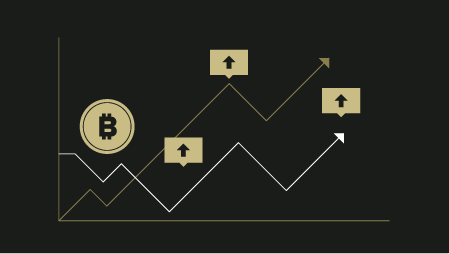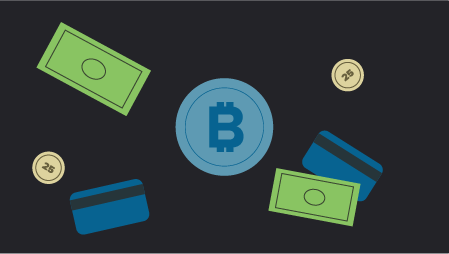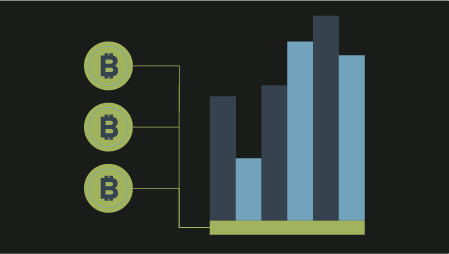Originally published at Ocean Protocol blog
Ready to learn Marketing analytics? Browse courses like Blockchain for Finance Professionals developed by industry thought leaders and Experfy in Harvard Innovation Lab.
A personal journey towards a data exchange protocol & network

Ocean.Image: Todd Dwyer CC-BY-SA 2.0
AI ♡
I think it’s amazing that you can design algorithms that might have society-level impact. AI algorithms are in that category. And, AI is fun. Take Genetic Programming, where you write computer programs to evolve other computer programs. Moreover, AI poses exciting engineering challenges like scaling, and it asks the biggest questions, like the nature of the mind.
For these reasons, AI was my first love. I started my AI reading and hacking intently in the early 90s. By 1997, I was far enough along hacking AI that people started paying me to do it. I never looked back, doing two companiesand a PhD on AI.
 Genetic programming is code to evolve code, which (in this case) grows analog circuits. From [McC2011]
Genetic programming is code to evolve code, which (in this case) grows analog circuits. From [McC2011]
Blockchain ♡
In 2013, I started hacking on Bitcoin, and got hooked. Once again, I found myself designing algorithms that might have society-level impact.
Like AI, Blockchain is great fun, from learning new consensus algorithms, to vicariously watching ICO madness.
Also like AI, blockchain poses exciting engineering challenges like scaling, and asks big questions like the nature of truth. What’s not to love?
AI 💥Blockchain
Blockchain has been my focus for several years. But AI was always my first love, and I never let go. I kept reading AI papers, giving keynotes on AI, co-running Berlin’s biggest AI meetup, and more.
Would the worlds of AI and blockchain ever collide? I’d always hoped so, and they finally collided for me in mid 2016. It was over drinks with my dear friends Simon de la Rouviere and Greg McMullen. We started dreaming what might happen if you unleashed AI into a decentralized substrate like Ethereum. The first AI millionaire! AIs with rights, using today’s legal infrastructure! Minds blown. We wrote about it, in AI DAOs articles by me [2] and by Simon. What fun! There’s more coming.. 😉
From that first foray into AI*blockchain, I started asking: what other ways might blockchain help AI? The number of the answers surprised me. I documented it in this piece. For example, we can address “garbage-in, garbage-out” problems with provenance on training data and on building models themselves. Blockchain helps sharing datasets, for higher-accuracy models and more.
Data
As I contemplated blockchains for AI, and for big data, all roads led to the same place: the problem of data. Here’s the issue. Many enterprises have plenty of data but don’t know how to make it available to the world. Latent value lurks everywhere. Conversely, many startups know how to turn data in to value using AI, but they’re starving for data.
Only a handful of companies in the world — Google, Facebook, and the like — have both massive datasets and the AI knowledge to turn it into value. Their moat is data, not AI algorithms. Calling themselves AI companies is merely a head fake. They’ve used the combination of data * AI to become the most powerful companies in the world.
It’s 2017. Society runs on data, yet much of it is controlled by a handful of companies with more power, resources, and reach than most nations. How can we equalize access to data, and therefore opportunity to make the most of modern AI and compute?
Data Marketplace FTW?
All roads lead to the same solution too: a data marketplace. A medium to connect data-haves with data-have-nots. It spreads out data-AI network effects, in turn spreading power and wealth.
But the technology is not easy. It needs to store who owns what data, with tight user control & privacy. It needs to reconcile with governments and regulators on privacy and data sharing. It needs to be decentralized. It needs to be at scale, not just some shiny toy technology. Decentralized tech at scale is hard. However, that’s exactly what we’ve been working on since 2015: IPDBrunning BigchainDB. A shared planetary-scale database.
This data marketplace needed to get built. We realized that we had a unique position to make a difference. First, we had the scalable blockchain database technology. Second, we had both AI and blockchain expertise, key for designing data marketplace algorithms. Third, we knew the customers’ worlds, both data suppliers (enterprises) and data buyers (AI companies). Finally, we’d built relationships with governments and data regulators.
Something else happened as we went down this path. Others read my articles, reached the same conclusion as us (data marketplace💡), and reached out. Two main projects emerged, backed by excellent people: with Chris Ballinger at Toyota Research Institute (TRI) and Chirdeep Chhabra at DEX (Data Exchange SG). We’ve worked with both of them since early this year.
Toyota Research Institute (TRI)
With TRI, we built a prototype marketplace for self-driving car data which we announced in May 2017 at Consensus NYC. Here’s the code.
 Autonomous vehicles prototype marketplace (AVDEX).
Autonomous vehicles prototype marketplace (AVDEX).
We also used this an an opportunity to try out zero-knowledge proofs for privacy. The conclusion: brain-bending and fun, but does not meet the speed we need for industrial deployment. Yet.
Data Exchange SG (DEX)
DEX is a Singapore-based startup, which has been shipping a centralized data marketplace for a few years. By 2017, their growth had stalled: customers were worried about who controlled the data. I’ve known the CEO of DEX, Chirdeep Chhabra, for a few years. He reached out to me in early 2017 and said “we need to talk.” He’d realized that appropriate decentralization technology could make all the difference. It was the start of a great collaboration.
Ocean Protocol
We started by considering a decentralized data marketplace. But we realized that we could unlock a whole ecosystem of marketplaces, exchanges, of ways to supply data and consume data.
What we needed was a protocol and network, on which data marketplaces can be built. This is Ocean. Its network (running the Ocean protocol) handles storing of the metadata (i.e. who owns what), links to the data itself, and more. On top of Ocean there can be thousands of data marketplaces and exchanges, all accessing the same data. Each marketplace acts as the last mile in connecting buyers and sellers.
We hope that Ocean will unlock our dream of a world-scale data commons. Ocean’s token design reflects this goal.

Up next
We’re working closely with DEX and other marketplaces, data regulators, data suppliers, data consumers, and others to make this vision a reality.
In coming weeks and months, we’ll be sharing more information about Ocean. Protocols. A Whitepaper. Blog posts. Code. Stay tuned🙂
And, welcome to the future of data. It’s in your hands now.




